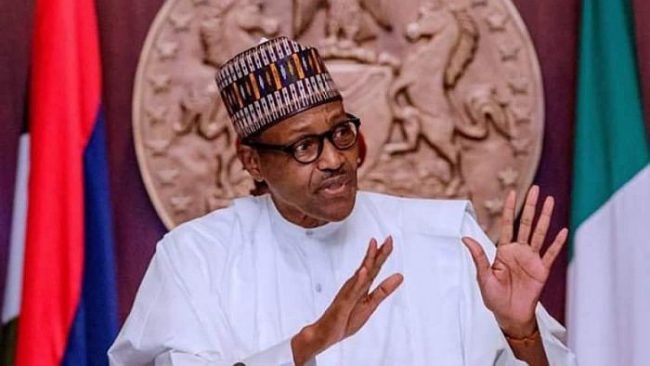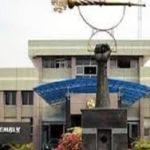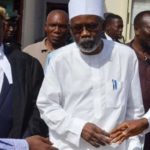President Muhammadu Buhari has warned of the severe consequences that a return of petroleum subsidy will cause the nation.
Speaking at the start of the first-year Ministerial performance review retreat holding in Abuja, on Monday, he assured that his administration is extremely mindful of the pains that higher prices mean, and so, does not take the sacrifices that all Nigerians have to make for granted.
Represented by Vice President Yemi Osinbajo, the President said “The COVID-19 pandemic, has led to a severe downturn in the funds available to finance our budget and has severely hampered our capacity.
“One of the steps we took at the beginning of the crisis in March when oil prices collapsed at the height of the global lockdown, was the deregulation of the price of premium motor spirit (PMS) such that the benefit of lower prices at that time was passed to consumers. This was welcomed by all and sundry.
“The effect of the deregulation though is that PMS prices will change with changes in global oil prices. This means quite regrettably that as oil prices recover we would see some increases in PMS prices. This is what has happened now. When global prices rose, it meant that the price of petrol locally will also go up.
“There are several negative consequences if the government should even attempt to go back to the business of fixing or subsidising PMS prices. First of all, it would mean a return to the costly subsidy regime. Today we have 60% less revenues, we just cannot afford the cost.
“The second danger is the potential return of fuel queues – which has, thankfully, become a thing of the past under this administration. Nigerians no longer have to endure long queues just to buy petrol, often at highly inflated prices.
Also, as I hinted earlier, there is no provision for fuel subsidy in the revised 2020 budget, simply because we are not able to afford it if reasonable provisions must be made for health, education and other social services. We now simply have no choice.
“Nevertheless, I want to assure our compatriots that the government is extremely mindful of the pains that higher prices mean at this time, and we do not take the sacrifices that all Nigerians have to make for granted.
“We will continue to seek ways and means of cushioning pains especially for the most vulnerable in our midst. We will also remain at alert to our responsibilities to ensure that marketers do not exploit citizens by raising pump price arbitrarily.
“This is the role that the government must now play through the Petroleum Products Pricing Regulatory Agency (PPPRA). This explains why the PPPRA made the announcement a few days ago setting the range of price that must not be exceeded by marketers.
“The advantage we now have is that anyone can bring in petroleum products and compete with marketers, that way the price of petrol will keep coming down.”
On the impact of COVID-19 on the nation’s revenue, Buhari said the country is facing a trying time because of poor revenue from crude oil while foreign reserves have dropped drastically.
He added: “For the government, it has been a particularly trying time. As a result of the poor fortunes of the oil sector, our revenues and foreign exchange earnings have fallen drastically. Our revenues have fallen by almost 60 per cent.
“Yet we have had to sustain expenditures, especially on salaries and capital projects, in order to keep the economy going.”
Buhari maintained that in order to keep the electricity industry going, his administration has so far spent almost N1.7 trillion supplementing tariffs shortfalls, noting that at this point, there are no resources to continue in this way.
He affirmed that it will be grossly irresponsible to borrow to subsidise a generation and distribution which are both privatised.
The president expressed disappointment with the services of distribution companies in recent times, saying that with dwindling resources, spending N17 trillion in tariff subsidy is no longer sustainable.
He explained that “The recent service-based tariff adjustment by the DISCOs has also been a source of concern for many of us. Let me say frankly that like many Nigerians, I have been very unhappy about the quality of service given by the Discos, but there are many constraints including poor transmission capacity and distribution capacity.
“I have already signed off on the first phase of the Siemens project to address many of these issues. Because of the problems with the privatisation exercise, the government has had to keep supporting the largely privatised electricity industry.
So far, to keep the industry going, we have spent almost N1.7 trillion, especially by way of supplementing tariffs shortfalls.
“We do not have the resources at this point to continue in this way and it will be grossly irresponsible to borrow to subsidise a generation and distribution which are both privatised. But we also have a duty to ensure that the large majority of those who cannot afford to pay cost-reflective tariffs are protected from increases.
“NERC, the industry regulator, therefore, approved that tariff adjustments had to be made but only on the basis of guaranteed improvement in service. Under this new arrangement, only customers who are guaranteed a minimum of 12 hours of power and above can have their tariffs adjusted.
“Those who get less than 12 hours supply, or the B and D and E Customers must be maintained on lifeline tariffs, meaning that they will experience no increase. This is the largest group of customers. Government has also taken notice of the complaints about arbitrary estimated billing.
“Accordingly, a mass metering programme is being undertaken to provide meters for over five million Nigerians, largely driven by preferred procurement from local manufacturers – creating thousands of jobs in the process. NERC has also committed to strictly enforcing the capping regulation which will ensure that unmetered customers are not charged beyond the metered customers in their neighbourhood. In other words, no more estimated Billings.”
The President said in order to address the power problems, it must be noted that most Nigerians are not even connected to electricity at all.
He stated: “So as part of the Economic Sustainability Plan, we are providing Solar home systems to 5 million Nigerian households in the next 12 months. We have already begun the process of providing financing support through the CBN for manufacturers and retailers of Off-Grid Solar Home Systems and Mini-Grids who are to provide the systems.
“The Five million systems under the ESP’s Solar Power Strategy will produce 250,000 jobs and impact up to 25 million beneficiaries through the installation This means that more Nigerians will have access to electricity via a reliable and sustainable solar system.
“The support to Solar Home System manufacturers and the bulk procurement of local meters will create over 300,000 local jobs while ensuring that we set Nigeria on a path to full electrification. The tariff review is not about the increase, which will only affect the top electricity consumers, but establishing a system which will definitely lead to improved service for all at a fair and reasonable price.”
The President spoke of his administration’s N2.3 trillion economic sustainability plan to mitigate the effect of the economic slowdown, saying that it will enhance local production, support businesses, retain and create jobs and provide succour to Nigerians, especially the most vulnerable.
While noting that “we have also had to make some difficult decisions to stop unsustainable practices that were weighing the economy down,” he described as coincidental the timing of the adjustments in prices of petrol pump price and power tariff.
According to him,, “It is important to stress that this is coincidental in the sense that the deregulation of PMS prices happened quite some time ago, it was announced on 18 March 2020 and the price moderation that took place at the beginning of this month was just part of the on-going monthly adjustments to global crude oil prices.
“Similarly, the review of service-based electricity tariffs was scheduled to start at the beginning of July but was put on hold to enable further studies and proper arrangements to be made. This government is not insensitive to the current economic difficulties our people are going through and the very tough economic situation we face as a nation, and we certainly will not inflict hardship on our people.
“But we are convinced that if we stay focused on our plans, brighter and more prosperous days will come soon. Ministers and senior officials must accordingly ensure the vigorous and prompt implementation of all of our programmes, which will give succour to Nigerians.”
The President pointed out that the Central Bank of Nigeria (CBN) has created credit facilities N100 billion for the Healthcare and Manufacturing sectors.
In his welcome remark, the Secretary to the Government of the Federation (SGF) Boss Mustapha, said the retreat will help the government to address the country’s current economic challenges, and consolidate on achievements over the past year.
He said the retreat has been designed to review the performance of each Minister in delivering the priority mandates, including programmes and projects assigned to them upon their appointment in 2019; identify key impediments to implementation; and te-strategise on how to accelerate delivery of results, given the current economic situation.
He informed us that the retreat is also an opportunity to effectively evaluate the activities of the Ministries over the last 12 months with regard to the delivery of our agenda and promise to Nigerians.
According to him, progress on the performance of the implementation of the nine priority areas will be reported on a regular basis.






